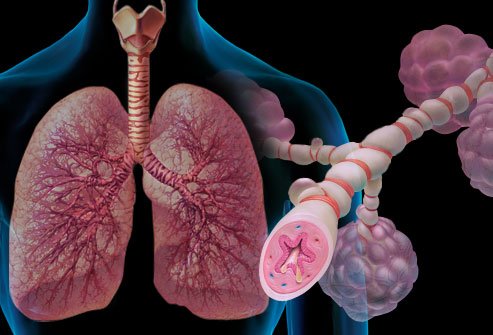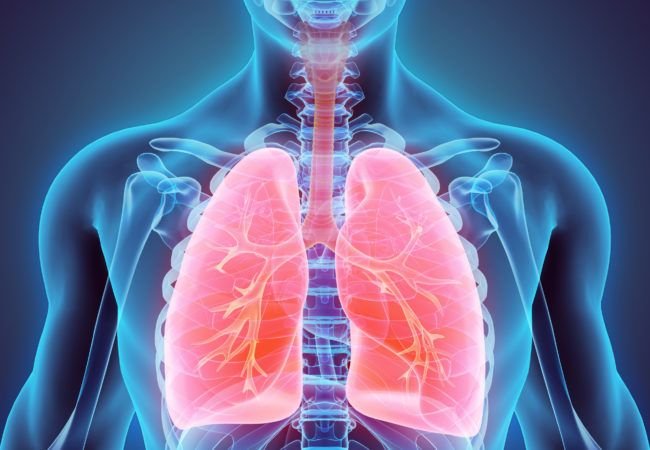The effects of aging on the respiratory system. Age-related changes in the lungs include:
Decreases in peak airflow and gas exchange
Decreases in measures of lung function such as vital capacity (the maximum amount of air that can be breathed out following a maximum inhalation)
Weakening of the respiratory muscles
Changes to the bones and muscles of the chest and spine:
Bones become thinner and change shape. This can change the shape of your ribcage. As a result, your ribcage cannot expand and contract as well during breathing.
The muscle that supports your breathing, the diaphragm, becomes weakened. This weakness may prevent you from breathing enough air in or out.
Progressive loss of the aging lung's static recoil forces produces airway closure at lung volumes in the tidal volume range,which leads to decreased arterial Po2. Under conditions that decrease oxygen content of arterial blood, the increase in both ventilation and cardiac output is smaller in elderly persons than in younger subjects. Therefore, less oxygen may be delivered to the tissues.

emphysema: is normally found in people aged 50-70. On average, roughly 1 square foot of respiratory membrane is lost each year after age 30.
The aging process can also affect the respiratory system by causing a type of emphysema known as senile emphysema, even in those who do not smoke. This happens when the alveoli—where the actual gas exchange of oxygen and carbon dioxide takes place—lose their depth and become flatter, thereby reducing their surface area.
changes in the thoracic cage and lung parenchyma, abnormal findings on lung function tests, ventilation and gas exchange abnormalities, decreased exercise capacity, and reduced respiratory muscle strength. Decreased respiratory system compliance caused by reduced elastic recoil of the lung parenchymaand thoracic cage is related to decreased energy expenditure by the respiratory system.

Strategies for supporting people with changes in the respiratory system:
Planning activities with shorter duration.
May need more rest periods.
Reposition person frequently if they are unable to move on they own.
Consult a doctor if person consistently coughs during or after a meal.
Encourage deep breath exercises.
Breathe through nose to moisturize the inhaled air.


source:
@mehdikh19
https://connectability.ca/2012/03/07/changes-in-the-respiratory-system/
https://www.slideshare.net/ProfessorShep/common-aging-changesspring-2012-abridged
http://www.merckmanuals.com/home/lung-and-airway-disorders/biology-of-the-lungs-and-airways/effects-of-aging-on-the-respiratory-system
https://www.ncbi.nlm.nih.gov/pmc/articles/PMC2695176/
http://www.mademan.com/mm/how-does-aging-process-affect-respiratory-system.html
great post
Nice information. Thanks for sharing.
This post has received a 71.43 % upvote from @khoa
thanks to: @khoa.@@@@@@@@@@@@@@@@@@@@@@@@@@@@@@@@@@@@@@@@@@@@@@@@@@@@@@@@@@@@@@@@@@@@@@@@@@@@@@@@@@@@@@@@@@@@@@@@@@@@@@@@@@@@@@@@@@@@@@@@@@@@@@@@@@@@@@@@@@@@@@@@@@@@@@@@@@@@@@@@@@@@@@@@@@@SEND ANY AMOUNT TO GET AN UP VOTE
@mehdikh19 got you a $7.55 @minnowbooster upgoat, nice! (Image: pixabay.com)
Want a boost? Click here to read more!
This post has received a 8.62 % upvote from @booster thanks to: @mehdikh19.
i am upvoted and reply your post plz visit me
upvoted,reply,follow and resteem when you work in steemit thanks alot,
my id = https://steemit.com/@pranashroy